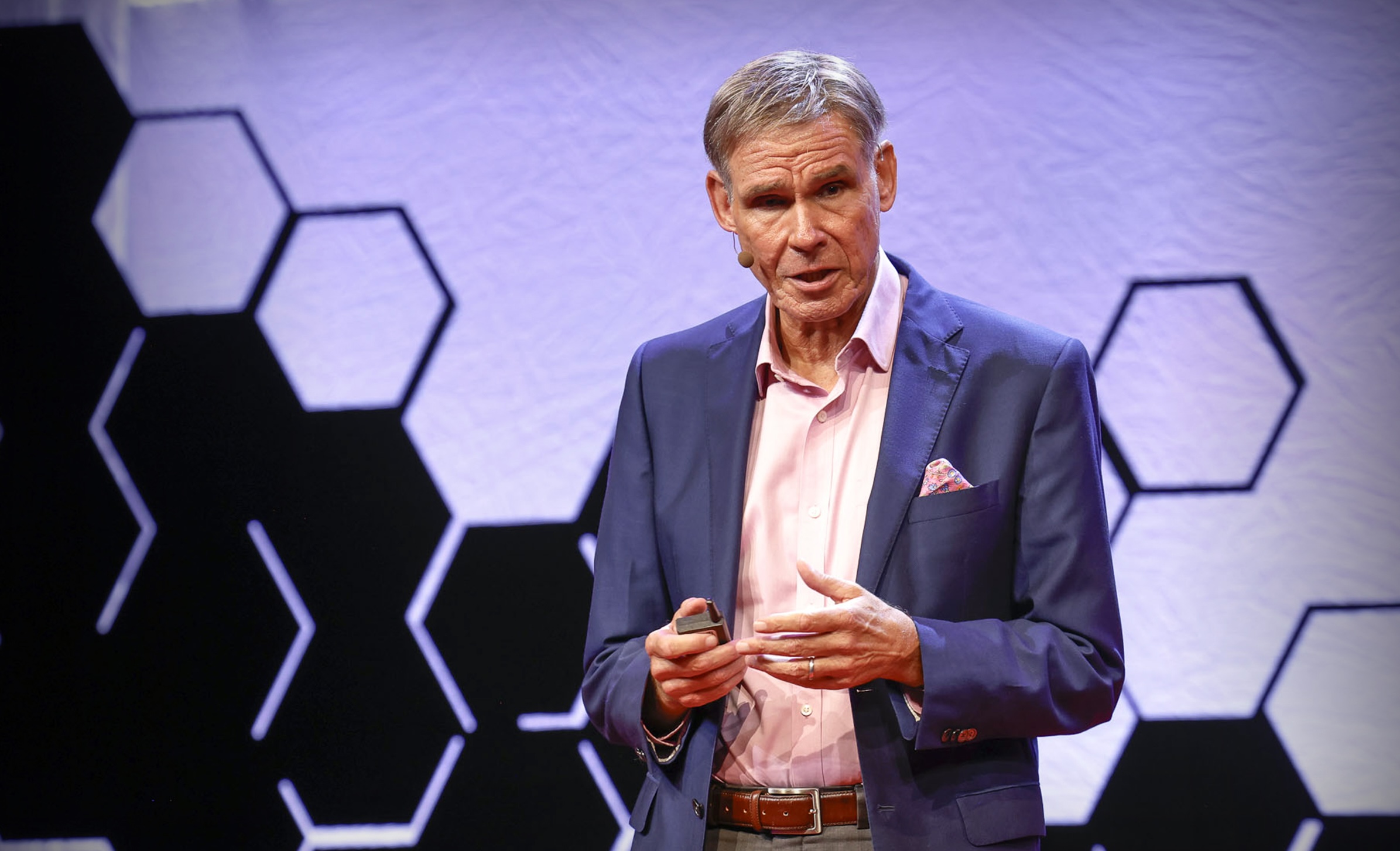Summit Wellness: "The Sensational Wenderleys"

By Summit Wellness Contributor Marc Lee Shannon
So, I ask you: How long will you live, and how well will you be when this journey reaches port? Notice that the question has two parts: how long and how well?
I am digesting and reflecting on a book now, and I'm about ⅓ finished, so this is a bit premature to discuss, but still, I have spent a few fresh coffee mornings thinking about this topic nonstop, so I want to share my thoughts, even if they are incomplete.
How well can I be in the rest of my life? The golden years, the time in my life that I have worked hard to enjoy and savor with my loved ones, guitar in hand or on stand nearby, golf clubs in the trunk, grandchildren on the way someday. (Nudge, hint, Shannon boys).
Dr. Eric Topol is an American Cardiologist and Author. He is the founder and Director of the Scripts Research Transitional Institute, and his accomplishments and credentials are too numerous to name here. Still, one stands out to me: As a researcher, he has published over 1,300 peer-reviewed articles with more than 340,000 citations and is one of the top 10 most cited medical researchers. Yep, he knows what's up, he’s that guy.
His new book, “Super Agers: An Evidence-Based Approach to Longevity,” has piqued my brow and set me back on my heels.
Topol has published multiple original research and review papers in leading peer reviewed journals on Artificial Intelligence (AI) in the medical field. His observations, predictions, and hopeful optimism were welcome for this reader who often stumbles across contrarian views hobbled with doomsday predictions. Remarkable as it may seem, many directional movements in the AI field can help predict major disease inevitability before it happens. Sometimes decades or more. He also presented a TED Talk on the transformative power of AI in medicine that is worth a view.
So, what is the takeaway from this Reporter, Essayist, Health Fanatic, on the 70 side of 60, former Minor-Rock-Star-Musician, and Recovery Advocate? Three things (my favorite number).
- Exercise. There is irrefutable evidence based on data that if you walk and do resistance training as a habit for 30-60 minutes 3-5 times a week, you will improve your chances of being older and well. This simple habit is not new by any means, but is true by all accounts.
- Food. What we put in the center of our head portal means everything. Processed food is a killer, full stop. Read the label to see if the food type product has ingredients that remind you of a first-year high school chemistry class. Danger, danger, don't do it. Whole foods like our grandparents ate are, without a doubt, better for us. Just look at any movie made in the 1940s, and you can tell that something about the meals at the family table was very different back in the day. Very different. Dig? What, how much, and when. Big difference.
- Sleep. So much depends on the ability to rest and rest well, and modern research tells us that we will not be able to function properly unless we get the recommended allowance of dream time determined by our age group. We suffer when we struggle to do what we need to do in the daylight because of a lack of what we need to do in the dark of night. Without proper rest, we are somnambulists seeking asylum. I just heard a wise whisper from an old Blues Musician pal in my ear tell me facetiously, “Rest is an activity, dude.” Yep.
So much makes sense, so why is it so hard to do the simple things we all know are better (Better-er) for us?
That's a profound and important question— and the answer is not just about willpower. How our modern environment, biology, and psychology interact is vital in explaining why we find it hard to do the right thing at the right time. We are wired for short-term comfort. Quick rewards, such as “who has time” messages from the media, bombard our common sense, and we give in.
Ultra-processed food is engineered to be hyper-palatable. Sugar, salt, and fat equal a powerful dopamine rollercoaster thrill. Screens, scrolling, and junk food tap into a dopamine loop, just like other addictive substances.
Our world is set up for convenience, not health. Drive-thrus, desk jobs, artificial light, and 24/7 access to entertainment create a toxic convenience where the easiest choices are the least healthy. Chronic stress and busyness help all this; we are all susceptible to this in our ultra-modern communication device-driven world.
Hey, we are all human and not necessarily lazy. We are all just that: normal humans living on a vastly changing planet that constantly pushes us to our limits.
A little self-kindness is in order. It’s just not easy.
I am excited to finish this book, but it has already inspired a new band idea. Instead of another typical, inappropriate skinny jeans longing for the old days, wishful former teenagers turned older rockers, I want to curate a new band. What's the outfit's name?
The Sensational Wenderleys.
Ha! It beats the alternative: Not-so-much Ill-derly, elderly guys who can't stand and play, sing, or lift their axe.
Till next time -- Stay Standing and Steady On.
mls






